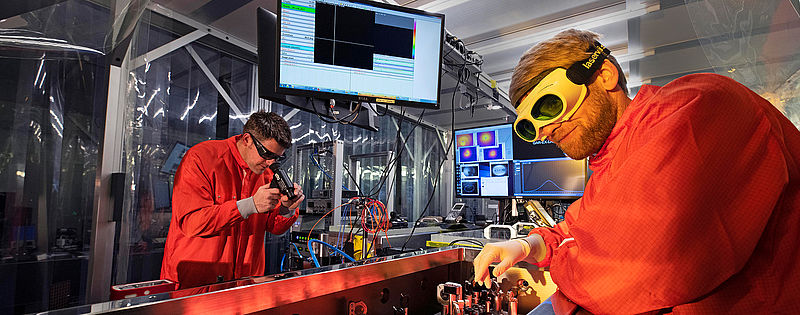featured publications – In cooperation between the Laboratory of Attosecond Physics at the Max Planck Institute of Quantum Optics and the Centre for Advanced Laser Applications of the Ludwig-Maximilians-Universität München, the King Saud University Riad and the Center for Molecular Fingerprinting (Budapest, Hungary), we have developed a molecular spectroscopy technique that overcomes long-standing limitations of traditional techniques, like Fourier-transform infrared spectroscopy.
A powerful femtosecond laser delivers 28 million pulses per second, with highly repeatable waveforms, comprising merely a few infrared-electric-field oscillations. Transmitting these pulses through a complex, molecular sample synchronously excites infrared-active vibrations of molecular bonds, each at its own eigenfrequency. The signals emitted by the vibrationally-excited molecules in the wake of the impulsive excitation coherently add up to a ‘molecular fingerprint’ characteristic of the sample’s molecular composition.
In contrast to traditional spectroscopies, where the entire response of the sample to an infrared excitation hits the detector(s), in field-resolved spectroscopy sub-optical-cycle portions of the time-domain fingerprint field are sequentially carved out by means of nonlinear optics. This dramatically reduces any infrared background on the measured signals, including the noise originating from the excitation and thermal background. This conceptional advance results in an unprecedented detection sensitivity and dynamic range.
We have also demonstrated first biological applications that have so far been beyond the reach of infrared vibrational spectroscopies. These applications include first high-signal-to-noise ratio infrared transmission measurements of living biological tissue and fingerprinting of liquid biopsies with sub-µg/ml sensitivity. Thus, field-resolved spectroscopy promises improved molecular sensitivity and molecular coverage for probing complex, real-world biological and medical settings.
